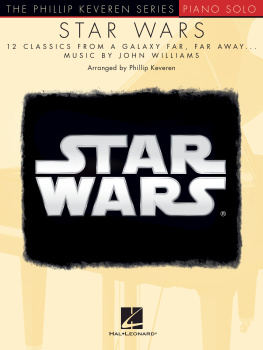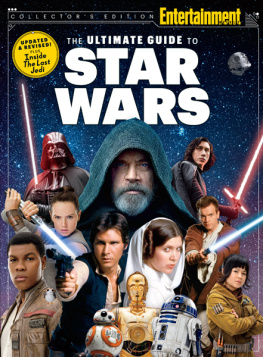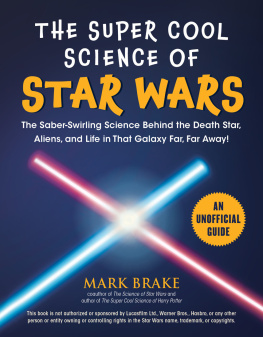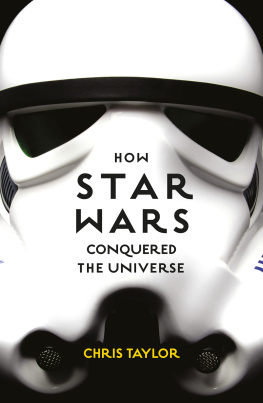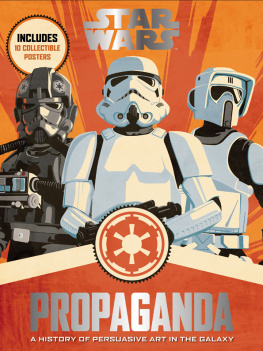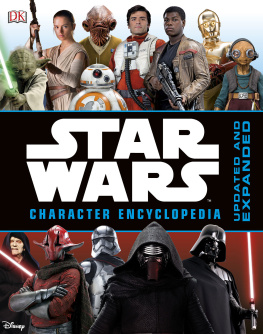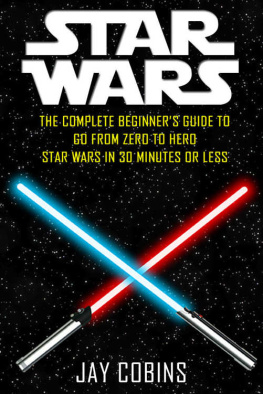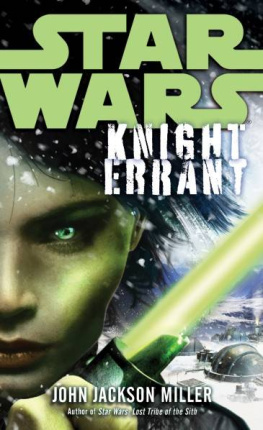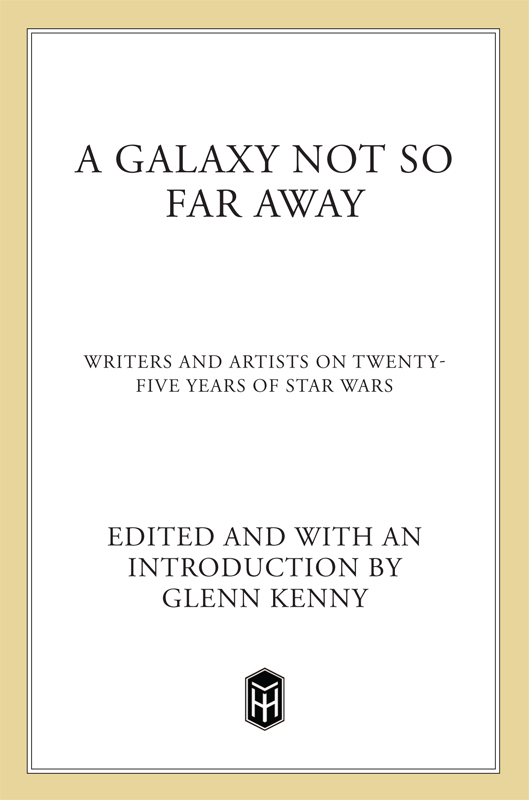Contents
Guide

The author and publisher have provided this e-book to you for your personal use only. You may not make this e-book publicly available in any way. Copyright infringement is against the law. If you believe the copy of this e-book you are reading infringes on the authors copyright, please notify the publisher at: us.macmillanusa.com/piracy.
CONTENTS
To the memory of my cousin,
Mark Anthony Relovsky, 19702002
G. K.
1: THE DEATH STAR?
In the 1976 film Network, William Holden plays Max Schumacher, a veteran television executive whos kind of a last bastion of all those lost broadcasting virtues that the name Edward R. Murrow is regularly trotted out to signify. Schumacher wages a losing battle against declining standards and increasing crassness in TV programming, eventually losing his job for his troubles. This simultaneously prescient and facile satire, written by Paddy Chayefsky and directed by Sidney Lumet, presents Schumacher as a surrogate for the audiencewere meant to feel his frustration and bemoan the imminent death of all the dying values he cherishes. But Chayefsky cannily complicates things by having the aging Max, a married man in the throes, it could be said, of male menopause (boy, you dont really hear that phrase too much these days, do you?), fall in love withor, rather, succumb to the blandishments ofmuch younger executive Diane Christensen. Venal, hyper, ratings-obsessed, and much more, Christensen is to Schumacher what Charles Foster Kane said he wanted to be to Walter P. Thatchereverything you hate. But shes a gurl, and shes played by Faye Dunaway, and Schumacher is going through male menopause, so, you know.
While his best friend, newscaster turned mad prophet of the airwaves Howard Beale, is creating a nationwide sensationand greatly propelling Dianes career trajectoryby going koo-koo for Cocoa Puffs on the air, Schumacher decides to come clean to his wife. Mrs. Schumacher (played by Beatrice Straight, who won a Best Supporting Actress Oscar for her work, which comprises less than four minutes of screen time) has a big go-to-pieces moment, but soon manages to compose herself and asks Schumacher what exactly the deal is with this broad (actually, she doesnt ask, but Schumacher is in such a haze over how he, a man of substance, could have possibly been seduced by such a creature that he cant stop himself from conducting this inquiry in front of the woman hes abandoning). And he basically denounces her and all those of her generation, describing her as a creature of television. She learned about life, he practically spits, such is his bitterness, from Bugs Bunny.
Whoa. I was about sixteen when I saw Network, not old enough to really wrap my head around the whole if-Max-doesnt-even-like-this-woman-how-come-hes-leaving-his-wife-for-her conundrum (dont worry, Id learn). Still for most of the movie I was pretty much with the characters program. But I mean, why Bugs Bunny? Looney Tunes and Merrie Melodies were awesome, and here was their most beloved character being dragged into the films argument to stand in for all the forces that, the movie would have us believe, were about to topple Western Civilization as we knew it and as Edward R. Murrow liked it. And in fact the line still gets my back up. What the hell did Bugs Bunny ever do to Paddy Chayefsky, anyway?
* * *
I can only imagine that motion picture enthusiasts younger than I must feel a similar indignation when they dip into, say, Peter Biskinds Easy Riders, Raging Bulls or David Thomsons Biographical Dictionary of Film, and discover that Star Wars killed the movies.
A perhaps dispiriting state of affairs to contemplate, seeing as we live in a world where Star Wars is, basically, everywhere. It started out with one movie George Lucas directed in 1977 and has since expanded into a fictional universe. Five features of a proposed six-movie cycle (at one point it was going to be nine, but with Lucas approaching his sixties that seems less and less likely) have been produced thus far. Theyve made Lucas himself rich beyond his wildest dreams (or maybe not; this is a guy who once boasted to his bossy dad that hed be a millionaire by the time he was thirty) and he has since put the money hes made from Star Wars into what amounts to his own moviemaking empire. I bet that most reasonably comfortable, reasonably media-savvy Americans dont go through a single day without hearing some passing Star Wars reference, in conversation or over the television or radio, or without seeing some ad or headline or Internet graphic that refers to it, or without coming upon a piece of Star Wars related merchandisebook, comic, coffee mug, what have you. (Several examples of how Star Wars references can be folded into just about any disquisition on any topic can be found in the Miscellany at the end of this book.) I suppose for guys like Thomson and Biskind, it must be really fucking irritating. For everybody else, including many of the writers in this bookthere are a few who dont remember a world before Star Wars existedto them, it just is. At least at firstobviously, its not the case for those who, in the pages that follow, reflect upon the effect that the Star Wars phenomenon has had on their own lives.
Actually, for Thomsonwho is, or was, let me get this out of the way right off the bat, one of the finest film critics in the country or, for that matter, the worldGeorge Lucass friend and sometime collaborator Steven Spielberg is more of a bte noire, but that may well be because he feels more engaged by Spielberg, feels Spielberg possesses a genuine talent that Spielbergs squandered in the service of a blockbuster-hungry Mammon that he and Lucas helped re-create. But, boy, does that Steven ever piss Thomson off. In his inaugural column for Esquire back in 1996, cheerily entitled Who Killed the Movies? he wrote of Spielberg: Even the gravity of Schindlers List is like the most popular kid in school taking advantage of his status to recommend education. Thats cool. We all know hes the quarterback, too, one heck of a dancer, andhey! fun! Didnt he make Jurassic Park at the same time as Schindlers List, just to prove he wasnt one of those dudes who couldnt concentrate? Only someone who wasnt brought up in the American education systemBritish-born Thomson now lives in the U.S.could possibly mistake Steven Spielberg for a quarterback.
When Thomson tackles Lucas in his Biographical Dictionary of Film, his palpable distaste for Lucas leads to some fairly wacky pronouncements; of the characters in Star Wars, he says, its people are raised on junk food; they are pink, puffy and anonymous. Perhaps Lucas could have avoided the pink problem had he paid more attention to the color timing. Thomson goes on: Good and evil are reduced to the level of opposing sides in electronic Ping-Pong. As opposed to the relative richness and complexity of a real game of Ping-Pong, I suppose. The usually persuasive Thomsons terminology, the implied eye-rolling over junk food and video games, really give him away here; not to put too fine a point on it, but he basically starts to stink of old-fartdom. Not that Im a huge fan of such modern or postmodern phenoms as junk food and electronic Ping-Pong myself, but, you know, get over it, Dad. Because when you come right down to it, so many Star Wars haters of a certain age wont, or cant, engage Star Wars on its own terms; they engage it, rather, as the grave marker for their own glorious youth. It echoes an argument you hear a lot when you talk or read about rock and roll. John Lennons Elvis died when he joined the army remark was the first, and most genuinely provocative, of such throwdowns. Theyve been coming fast and furious ever since. Kevin Klines character in The Big Chill has a much quoted no good music since year X line that I cant bring myself to cite accurately, as it would mean looking at the movie again; but wait, theres critic Jim Miller, in his book Flowers in the Dustbin, admitting that he basically lost interest after the Sex Pistols broke up; theres thousands of people probably younger than me, and maybe you, for whom it all ended after Kurt Cobain killed himself; et cetera. My favorite curmudgeon in this respect is the writer Nick Tosches, who will sometimes argue that Elvis himself killed rock and roll, and who will then, elsewhere, extoll the virtues of the latest Iggy Pop release. (And just for the record, movie critics have been trumpeting the death of film since before sound actually, really, killed it.)


